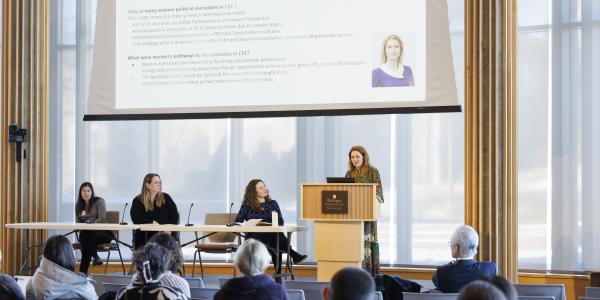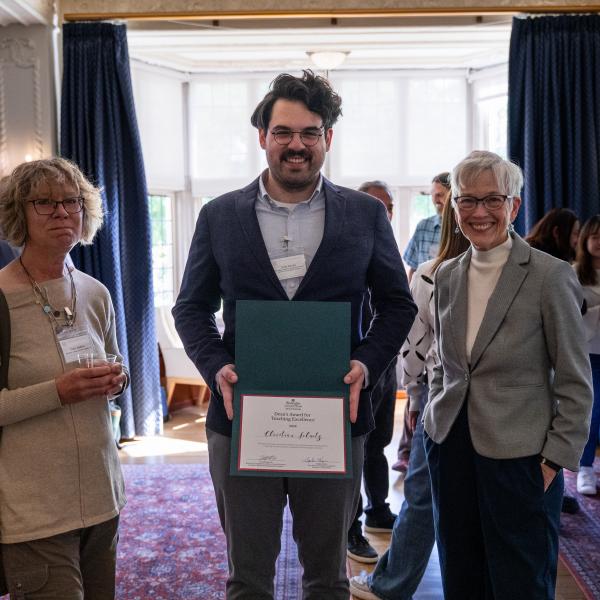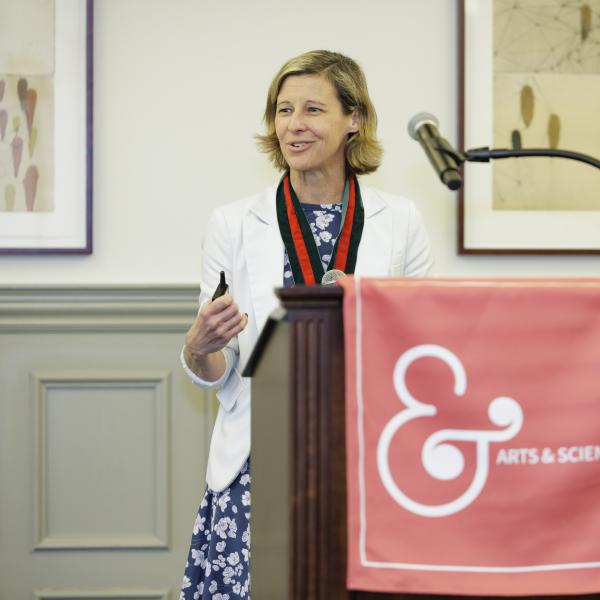
WashU faculty, staff, and supporters gathered in January for an afternoon of cutting-edge political science research celebrating the legacy of Bela Kornitzer, an acclaimed political journalist, author, and historian.
Kornitzer was the beloved uncle of Noémi Neidorff, a longtime WashU benefactor who established the new Bela Kornitzer Distinguished Professorship in the Department of Political Science. Noémi and her late husband, Michael Neidorff, have been champions of WashU and the St. Louis community for decades. “Noémi Neidorff’s visionary philanthropy allows us to advance research and teaching excellence in areas that were central to Mr. Kornitzer's work as a journalist and scholar,” said Chancellor Andrew D. Martin.
The symposium’s two panels — “War and Democracy in Central and Eastern Europe and Beyond” and “Political Communication and (Threats to) Democracy” — showcased political science faculty and alumnae, as well as visiting researchers. Diana Z. O’Brien, the inaugural Bela Kornitzer Distinguished Professor, organized and led the event.
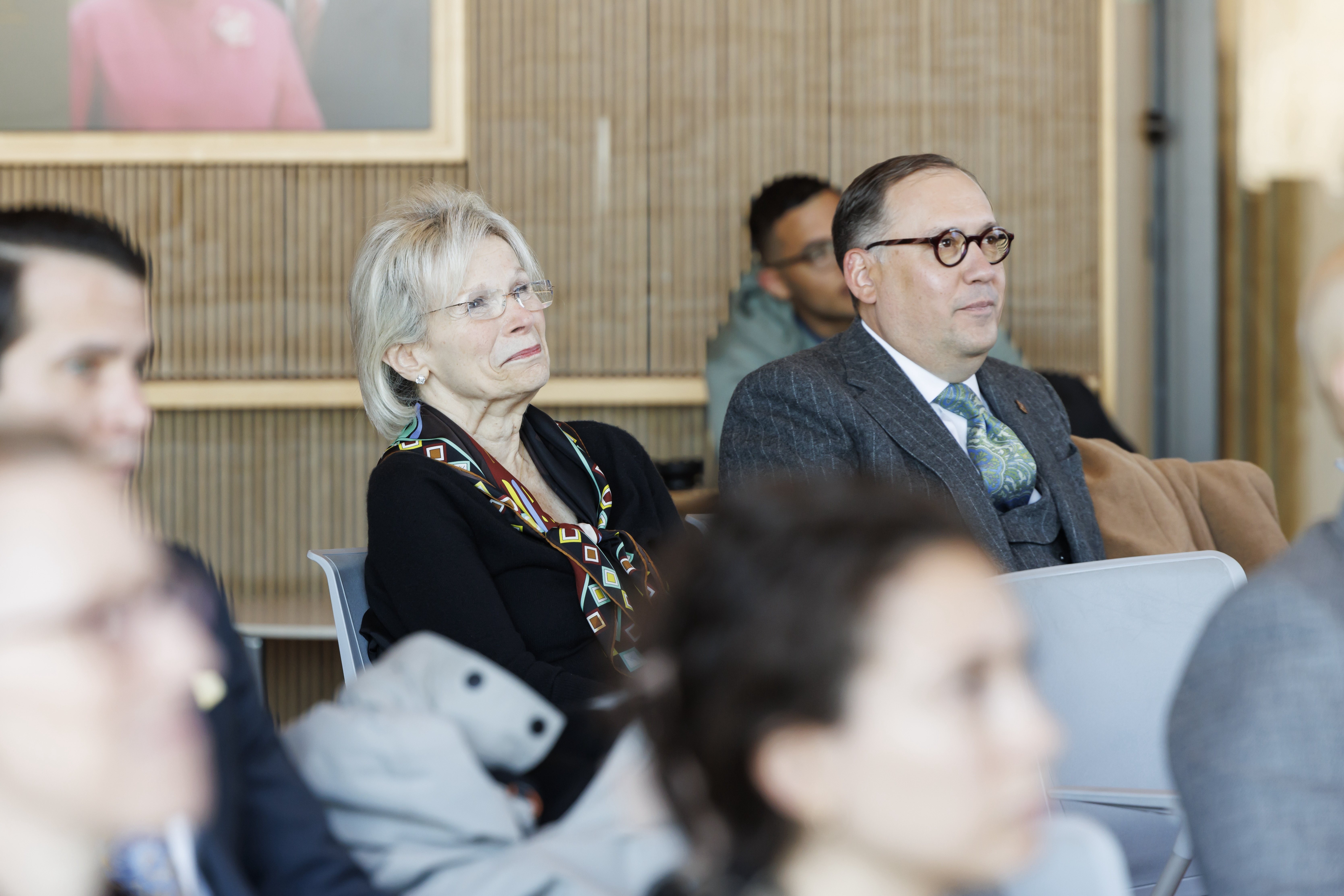
“When I received the Bela Kornitzer Professorship, I thought of it as both an honor and a responsibility,” O’Brien said at the symposium. “The aim of these positions is to recognize the legacy of those who have come before us. [I wanted to organize] this symposium where I could share Kornitzer’s story with all of you and honor his legacy by bringing together scholars who share his interests and values.”
Here are three key takeaways from the event.
1. Women remain quietly and explicitly excluded from politics.
Nearly every panelist highlighted the critical role of gender in contemporary politics. Purdue University’s Meg Rincker, PhD ’06, discussed her work measuring the number of female political executives in Central and Eastern Europe, shining a light on the puzzling reality that women in this region are often able to win their country’s most powerful office — but not the penultimate position.
Tiffany D. Barnes of the University of Kentucky shared her research into the decrease in cellphone access for women around the world — something she called “the gender digital divide” — and showcased the correlation between women’s access to these devices and their participation in local protests.
2. Don’t underestimate the significance of word-of-mouth information.
Social media and interpersonal communication play a crucial role in shaping politics. Barnes’ research highlighted how cellphones have transformed the ways citizens engage with politics, including increased access to news, amplification of protests, facilitation of information about the economy, and the mobilization of citizens for political goals.
Taylor Carlson, associate professor of political science, shared research from her upcoming book, “Through the Grapevine: Political Conversations and Distorted Democracy,” which revealed the information people share socially — a summary of a news article, for example — is sparse, biased, inaccurate, and mobilizing. While a third of all Americans learn about politics via word of mouth, Carlson found the recapped content is likely to be more inaccurate and polarizing.
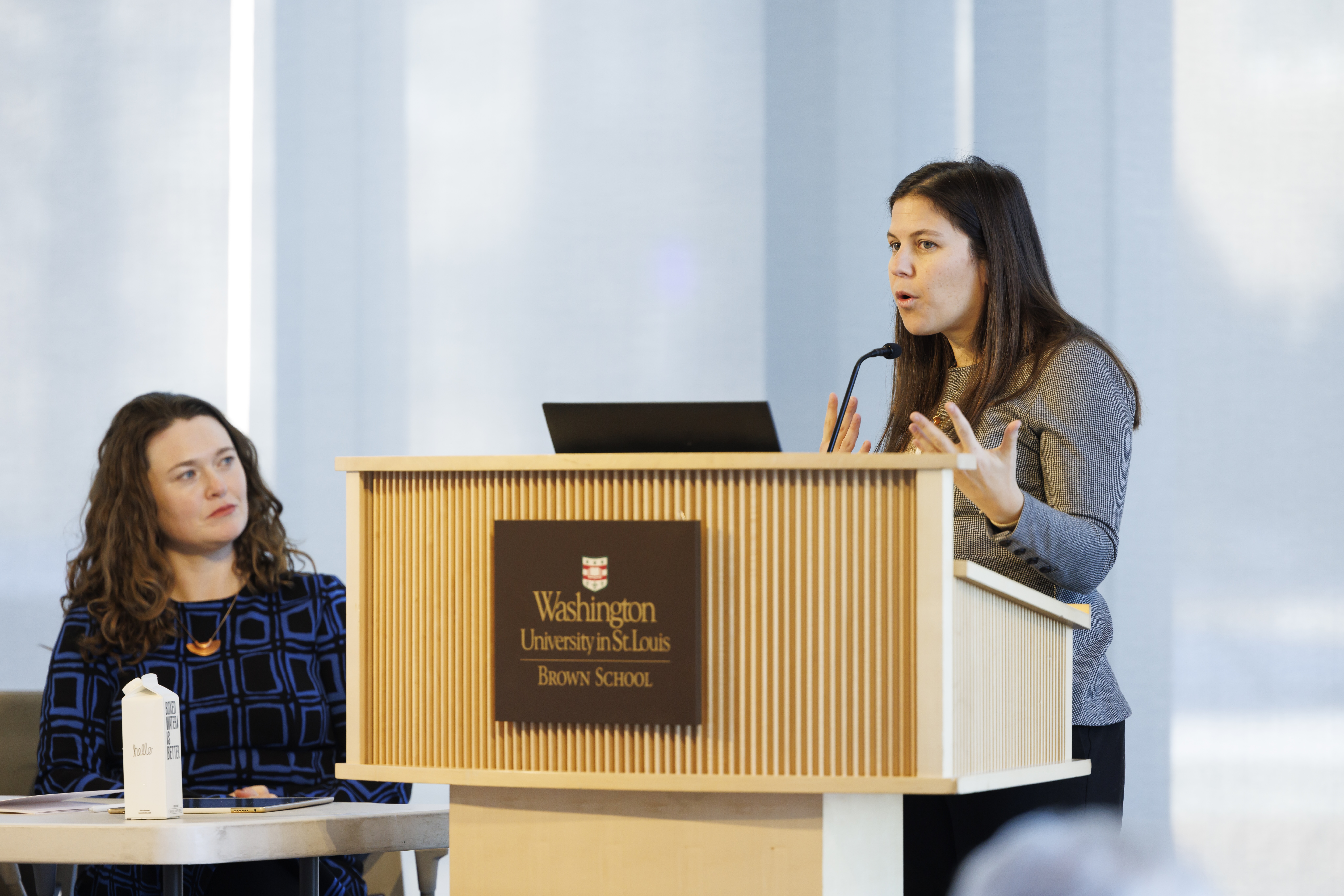
3. Leaders and media outlets are responsible for their rhetoric.
Polarizing rhetoric from political leaders was another recurring theme at the symposium. Carly Wayne, assistant professor of political science, presented research she co-authored with Luwei Ying, PhD ‘22, about the online rhetoric of white nationalist thought leaders. By scraping data from Twitter and Gab accounts of prominent leaders, they showed a strong correlation between what leaders said and how their followers repeated that rhetoric in a short timeframe.
This connected with Carlson’s research, which showed that socially transmitted information among people who share the same political party led to higher polarization. Leaders and journalists should honor the impact they have on society, Carlson said. “The way we talk about politics matters because of such ethical and responsible writers like Bela Kornitzer.”
